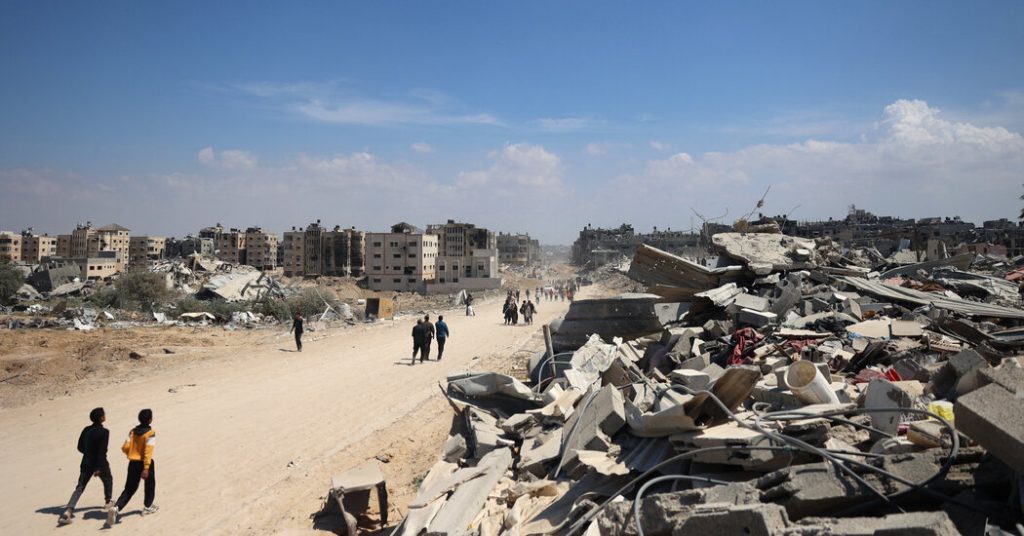The Israeli military has withdrawn a division of ground troops from the southern Gaza Strip, marking the end of a six-month war with Hamas. The army has significantly reduced the number of soldiers on the ground in Gaza over the past months, with only a fraction remaining. The last group of Israeli soldiers in Khan Younis has left Gaza to recuperate and prepare for future operations, leaving no troops actively maneuvering in southern Gaza. However, Israeli officials stated that troops would remain in other parts of Gaza to maintain their freedom of action and conduct intelligence-based operations.
Residents in Gaza remain skeptical of Israel’s plans, as previous withdrawals have been followed by returns to these areas. Osama Asfour, a resident of Khan Younis, expressed reluctance to return to his city, fearing that the military might come back at any time. The Biden administration also expressed uncertainty about the troop withdrawal, emphasizing the need for caution despite the announcement. Israel remained on high alert due to anticipated retribution from Iran for a recent strike in Syria that killed senior Iranian military officers.
Despite the troop withdrawal, tensions between Israel and Iran remain high, with both sides prepared for possible attacks. Israel’s defense minister indicated that follow-up missions were being prepared, including operations in Rafah. Meanwhile, international mediators came together in Cairo to negotiate a temporary cease-fire in Gaza and the release of hostages held by Hamas. While the outlines of a possible agreement have been clear, details have proved divisive, hindering progress in the negotiations.
The war between Israel and Hamas, now in its seventh month, has led to mounting anger in Israel towards the government’s handling of the conflict. Protesters have demanded more action to bring the hostages home and end the war. However, with Israel reluctant to agree to a cease-fire that allows Hamas to regroup and Hamas seeking guarantees for its long-term survival, negotiations for a truce have been difficult. The war has reached an impasse, with no clear path forward to bring about stability and humanitarian relief in the foreseeable future.
The prolonged conflict has led to a breakdown in civil order in Gaza, making it challenging to distribute aid safely. Scores of Palestinians have been killed around aid convoys amid chaos and Israeli fire, further exacerbating the humanitarian crisis. Mohammed Radi, a displaced restaurateur from Gaza City, expressed frustration and exhaustion after six months in tents, highlighting the urgent need for the war to end. Despite efforts by international mediators, the situation in Gaza remains precarious, with no immediate resolution in sight.


